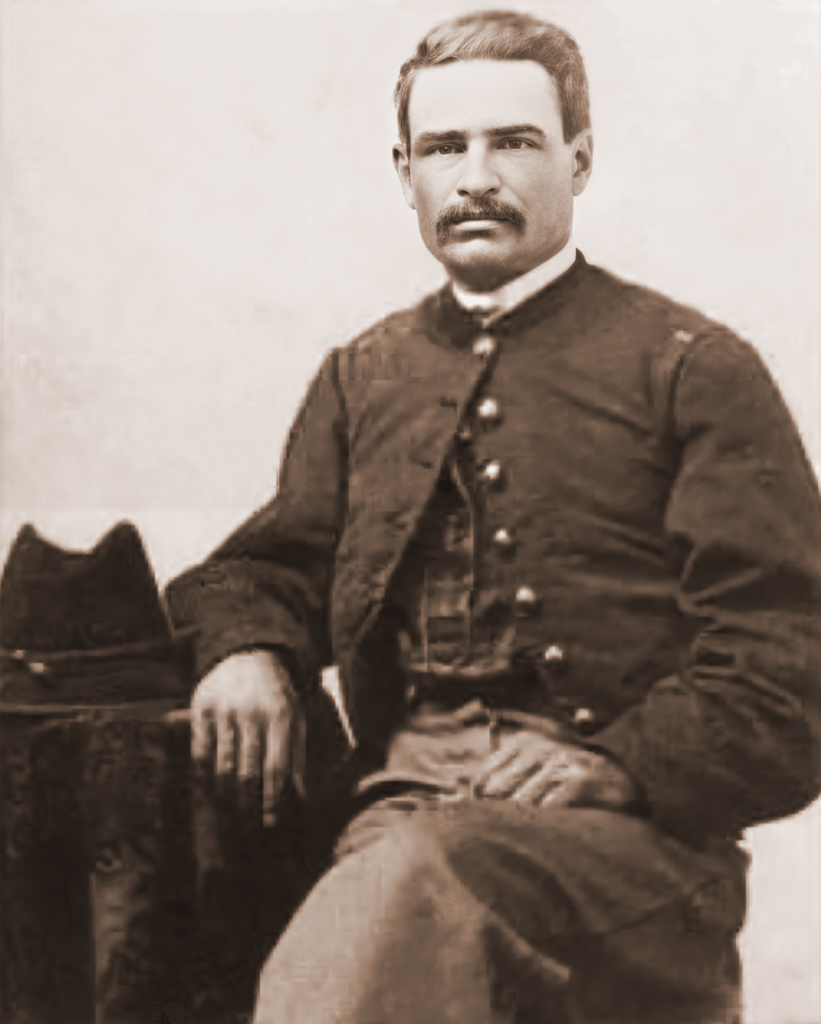1st Lieutenant Stephen Atkins Swails (23 February 1832—17 May 1900) was born in Columbia, Lancaster County, Pennsylvania to Peter W. Swailes (a white man) and Johanna Atkins (a black woman). Swails grew up in south central Pennsylvania and western New York. Years before, his parents (mother being a freed person from the slave state of Maryland), moved the family from the dangerous border state to Lancaster County, Pennsylvania. But, following the Fugitive Slave Law of 1850, abolitionists and ‘slave catchers’ frequently fought over the area (Columbia being right in the center of such activity), Peter Swails relocated his family further north to the abolitionist center of Elmira, NY.
Before the war, Stephen worked as a waiter and boatman in Cooperstown, NY. In 1862, Congress passed two acts that allowed the enlistment of Blacks in the armed services. On July 17 of that year, it passed the Second Confiscation and Militia Act which freed captives from the Confederate Army. Official enrollment took place after the September 1862 issuance of the Emancipation Proclamation (technically, it only officially allowed Black men to fight in battle). More than 216,000 uniformed African-American men joined. Three hundred thousand non-uniformed men fought as well. Swails entered the service at Elmira, New York as a member of Company F of the 54th Massachusetts Volunteer Infantry. The regiment’s young colonel, Robert Gould Shaw, quickly noticed Stephen’s leadership ability and promptly promoted him to rank of 1st Sergeant (the highest rank a Black solider could achieve at the time). Still, it took months to be official, although during the entire waiting period, Stephen performed in that capacity.

In the summer of 1863, Stephen Swails participated in the 54th’s assault on Fort Wagner at Charleston—an heroic event depicted in the 1989 film, Glory. On 20 February 1864, Swails was wounded at Olustee, Florida. After that battle, Col. Hallowell cited Swails for his “coolness, bravery, and efficiency” during the action despite being severely wounded. A month later, Swails was commissioned as 2nd Lieutenant by Gov. John Andrew. Stephen, once again, rose in the ranks on 18 April 1865—this time to 1st Lieutenant—a profound ‘first’ for a Black man in the US military. Stephen Swails was discharged from active duty on 20 August 1865, having reached the end of his term of service.
After the war, he became active in politics in South Carolina where decided to settle. Stephen became an agent for the Freedmen’s Bureau and practiced law in his new home of Kingstree, SC. He was elected Republican State Senator in 1867, and attended the National Republican Convention in 1872. He even found time to edit the Williamsburg Republican newspaper. The next year, Swails was appointed and commissioned as Major General, commanding the 1st Division National Guard for the State of South Carolina. Swails came to be elected State Senator and served from 1868-1878, and served three terms as President pro tempore.
By the late 1870s, Swails’ political career was all but over. At one point, a white mob tried to assassinate him in his chosen town of Kingstree. He resigned from office and, through his Republican connections, got himself a job in Washington, DC. By the time of his death, states were establishing Jim Crow laws. Black were now separate, unequal and disenfranchised through various poll taxes, bogus literacy tests, and relentless intimidation.
Stephen Atkins Swails died in Kingstree, South Carolina, and is buried in the Humane & Friendly Society Cemetery, Charleston. His grave remained unmarked until the 1970s.

